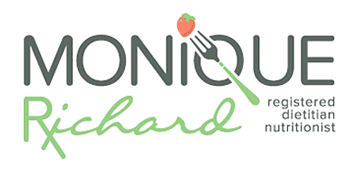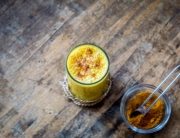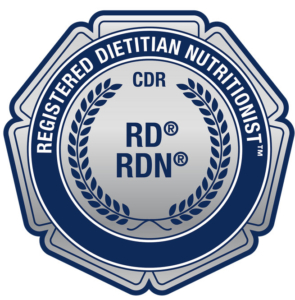The Low-Down on the Safety of Soy Foods
In the last couple of years, the soybean and soy foods have been greeted with a health halo. Yet, the public often worries that this nutrient-rich plant is dangerous and detrimental to one’s health. Where is this misinformation coming from? From fears of cancer to feminizing men, confusion abounds about the safety of consuming soy.
Soybeans contain compounds called isoflavones, which are phytoestrogens, or plant-estrogens. While phytoestrogens can attach to the estrogen-receptor in cells, research shows that in healthy individuals this has no negative impact, and comes along with many nutritional benefits.. Soy also contain phytates, compounds that in certain cases can inhibit the body from fully absorbing certain minerals or impact thyroid function. However, in the amounts and form traditionally and typically consumed by most populations, this does not impact health.
Research shows that consuming soy can have many positive health effects: it may help lower LDL, “bad” cholesterol, reduce the risk of breast cancer, and, results from population studies have led clinicians to advice that it is not necessary to recommend against soy for those diagnosed with cancer, despite lingering popular belief.
Studies have also shown that normal quantities of soy consumption do not produce any feminizing side effects in men.
Soybeans are an excellent source of protein and fiber, and also contain a wide array of nutrient including: magnesium, iron, calcium, Vitamin B6, folate, riboflavin (B2), thiamin (B1) and Vitamin K, and more. Soy foods can definitely be a friend to good health!
Here’s some things to keep in mind when choosing to add soy foods into your diet for its nutrient-rich benefits:
–Go for Certified Organic, which will always be non-GMO
–Choose the least processed soy products. Avoid products based in “soy protein isolate” (like many protein bars, supplements, or meat substitutes such as soy “hot dogs”) and instead think of foods like:
-tempeh (fermented soybean cake, traditional to Indonesia)
-miso (fermented soy and salt flavoring/paste traditional to Japan)
-edamame (green soybeans in their pod)
-tofu (made from soymilk)
-low sodium tamari (wheat free soy sauce)
-roasted or dried soy beans (a crunchy, convenient snack food)
Try experimenting with these soyfoods with fun new recipes like crumbled tempeh and veggie tacos, whipped chocolate tofu pudding with raspberries, edamame stir fry with garlic, tamari and bokchoy ,or soymilk based smoothies.
Several servings a day of these whole soy foods have no health risks and many potential health benefits. I do advise to always check the ingredient list of soyfoods to avoid forms of soy that are ultra-processed and less beneficial, and often come packaged with a host of other non-nutritious ingredients!
Enjoy the Soy!









